- فهرست کتاب ها
- قلب و عروق، قفسه سینه
- نورولوژی، جراحی مغز و اعصاب و علوم اعصاب
- چشم پزشکی، بینایی سنجی
- دندان پزشکی، دهان و فک و صورت
- دستگاه گوارشی و کبد
- گوش، حلق و بینی
- ریه و مجاری تنفسی
- ارولوژی و نفرولوژی
- ارتوپدی و روماتولوژی
- پوست و مو و ناخن (درماتولوژی)
- جراحی (عمومی،زیبایی و ..)
- زنان و زایمان
- پزشکی بازسازی و احیا
- بیماریهای عفونی و قارچی
- غدد و متابولیسم
- سرطان و تومور شناسی
- معاینات و علائم تشخیصی
- بیهوشی (عمومی و موضعی)
- رادیولوژی، پرتو نگاری، سونوگرافی، اسکن، MRI، تصویربرداری، ماموگرافی
- تروما (ارتوپدی، فک و صورت، مغزی)
- آموزش و تحقیقات پزشکی، آمادگی آزمون و منابع پزشکی
- آناتومی و فیزیولوژی
- ایمونولوژی و آلرژی
- پاتولوژی، سیتوپاتولوژی و سیتولوژی
- پروتز و اندام مصنوعی
- پزشکی کودکان، نوزادان و جنین شناسی
- سلول های بنیادی
- هماتولوژی (خون شناسی) و پزشکی انتقال خون
- چاقی، تغذیه و رژیم غذایی
- اخلاق پزشکی
- پزشک قانونی
- پیرپزشکی و پزشکی سالمندان
- مراقبت های ویژه، حاد و بحرانی
- پیوند اعضا
- داروسازی، داروشناسی و دارودرمانی
- روانپزشکی
- دامپزشکی
- پرستاری و دستیاری پزشک
- علوم آزمایشگاهی
- سم شناسی
- انگل شناسی
- ژن شناسی و ژن درمانی (ژنتیک)
- بافت شناسی و مهندسی بافت
- تکنولوژی و بیوتکنولوژی پزشکی
- توان بخشی، کاردرمانی، ورزش درمانی
- پزشکی سنتی و گیاهی و پزشکی جایگزین
- بهداشت و درمان
- مهندسی شیمی
- مهندسی پزشکی
- مهندسی صنایع غذایی
- فیزیک و بیوفیزیک
- زیست شناسی (بیولوژی سلولی و مولکولی)
- شیمی
- بیوشیمی (پزشکی، دارویی و …) و شیمی بالینی
- بیو انفورماتیک، انفورماتیک پزشکی
- ثبت سفارش کتاب
- نرم افزارهای مورد نیاز
- پشتیبانی بوک باز
دانلود کتاب پیشرفت در ارزیابی مصرف غذا
Advances in the Assessment of Dietary Intake, 1ed
Considerable evidence proves that self-reported dietary intake using written diaries or recalls are subject to bias resulting in poor accuracy. While dietary intake data are needed to drive many nutritional policies, the obesity epidemic has increased the need to assess diet with absolute accuracy.
- Covers the range of novel, technologic advances in dietary assessment.
- Describes the strengths and limitations of common dietary assessments both laboratory and traditional freeliving methods.
- Includes a comprehensive description of the varied goals of dietary assessment.
- Each chapter includes the theoretical basis of new assessment methodologies, their strengths and weaknesses, and basic information required to select the best approach based on individual needs.
About the Author
Dr. Dale A. Schoeller is a director of the Isotope Ratio Laboratory in the Biotechnology Center and is the professor emeritus in Nutritional Sciences and the University of Wisconsin-Madison, Madison, Wisconsin. He was the first investigator to use the doubly labeled water method to measure total energy expenditure in humans, which led to the observation that self-reported dietary assessment instruments systematically underestimated dietary energy intake compared to the amount of energy that individuals were actually expending. This work by him and many others resulted in paradigm shift in validating and modeling the error structure in dietary assessment instruments. More recently, he collaborated with leading nutrition epidemiologists to use the doubly labeled water method as a biomarker of habitual energy intake to quantify systematic errors in dietary energy intake instruments forming the basis of his work that resulted in this book. He earned his undergraduate degree from the University of Wisconsin-Milwaukee, Milwaukee, Wisconsin and his PhD in Chemistry from Indiana University, Bloomington, Indiana. He was trained as a post-doctoral fellow in Biomedical Sciences at the Argonne National Laboratory, Lemont, Illinois and joined the faculty of Medicine at the University of Chicago (Illinois, Chicago), where he directed the Stable Isotope Core Laboratory as part of the Clinical Nutrition Research Unit. For the last 20 years, he continued his research on the energetics of obesity at the University of Wisconsin-Madison. His research has been recognized through multiple awards including the Herman Award for Clinical Research from the American Society for Clinical Nutrition, the O.W. Atwater Award for Research from Agricultural Research Service, and the Friends of Mickey Stunkard Lifetime Achievement Award from the Obesity Society.
Contents
Chapter 1: Benefits and Limitations of Traditional Self–Report Instruments
Chapter 2: Statistical Approaches to Mitigate Measurement Error in Dietary Intake Data Collected Using ۲۴–hour Recalls and Food Records/Diaries
Chapter 3: Computer–Assisted Dietary Assessment Methods
Chapter 4: Strategies for Improving the Validity of the ۲۴-hour Dietary Recall and Food Record Methods
Chapter 5: The Assessment of Food Intake with Digital Photography
Chapter 6: Meal Patterns, Physical Activity, Sleep, and Circadian Rhythm
Chapter 7: Assessment of Ingestion by Chewing and Swallowing Sensors
Chapter 8: Bites as a Unit of Measurement
Chapter 9: Direct and Indirect Measures of Dietary Intake: Use of Sensors and Modern Technologies
Chapter 10: Use of Doubly-Labeled Water Measured Energy Expenditure as a Biomarker of Self-Reported Energy Intake
Chapter 11: Biomarker for Energy Intake: Resting Energy Expenditure and Physical Activity
Chapter 12: Dynamic Modeling of Energy Expenditure to Estimate Dietary Energy Intake
Chapter 13: Use of Intake Biomarkers in Nutritional Epidemiology
Chapter 14: Stable Isotopic Biomarkers of Diet
Chapter 15: The Food Metabolome and Dietary Biomarkers
Chapter 16: Metabolomic Techniques to Discover Food Biomarkers
Chapter 17: The Validation of Dietary Biomarkers
Chapter 18: Targeted and Untargeted Metabolomics for Specific Food Intake Assessment: Whole Grains as an Example
Chapter 19: Strengths and Limitations of Food Composition Databases
لینک کوتاه : https://bookbaz.ir/?p=74042
نویسنده : Dale A. Schoeller , M. Westerterp
ناشر : CRC Press; 1 edition
سال انتشار : 2017
زبان کتاب : انگلیسی
نوع فایل : PDF
تعداد صفحات : 385
(ISBN) شابک : 1498749321
قیمت کتاب درآمازون : $47.99
حجم فایل : 10 MB
کتاب های مرتبط:
 دانلود کتاب تغذیه پیشرفته و متابولیسم انسانی
دانلود کتاب تغذیه پیشرفته و متابولیسم انسانیAdvanced Nutrition and Human Metabolism, 7ed
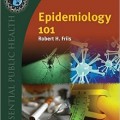 دانلود کتاب اپیدمیولوژی ۱۰۱
دانلود کتاب اپیدمیولوژی ۱۰۱Epidemiology 101, 1ed
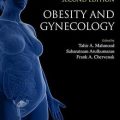 دانلود کتاب چاقی و پزشکی زنان
دانلود کتاب چاقی و پزشکی زنانObesity and Gynecology, 2ed
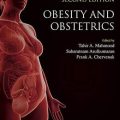 دانلود کتاب چاقی و زایمان: یک بمب ساعتی برای سلامت باروری
دانلود کتاب چاقی و زایمان: یک بمب ساعتی برای سلامت باروریObesity and Obstetrics: A Ticking Time Bomb for Reproductive Health, 2ed
 دانلود کتاب تغذیه امروزی واردلو
دانلود کتاب تغذیه امروزی واردلوWardlaw’s Contemporary Nutrition, 10ed
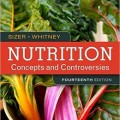 دانلود کتاب تغذیه: مفاهیم و اختلافات
دانلود کتاب تغذیه: مفاهیم و اختلافاتNutrition: Concepts and Controversies, 14ed
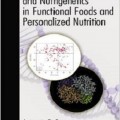 دانلود کتاب ژنومیک و ژنتیک تغذیه در غذاهای کاربردی و تغذیه شخصی
دانلود کتاب ژنومیک و ژنتیک تغذیه در غذاهای کاربردی و تغذیه شخصیNutrigenomics and Nutrigenetics in Functional Foods and Personalized Nutrition
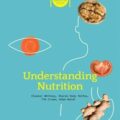 دانلود کتاب درک تغذیه ویتنی
دانلود کتاب درک تغذیه ویتنیWhitney’s Understanding Nutrition 5th Edition
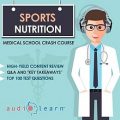 دانلود کتاب صوتی تغذیه ورزشی دوره دانشکده پزشکی کرش کورس
دانلود کتاب صوتی تغذیه ورزشی دوره دانشکده پزشکی کرش کورسSports Nutrition – Medical School Crash Course
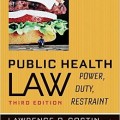 دانلود کتاب قانون سلامت عمومی: قدرت، وظیفه، خویشتن داری
دانلود کتاب قانون سلامت عمومی: قدرت، وظیفه، خویشتن داریPublic Health Law: Power, Duty, Restraint, 3ed
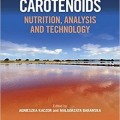 دانلود کتاب کاروتنوئیدها: تغذیه، آنالیز و فناوری
دانلود کتاب کاروتنوئیدها: تغذیه، آنالیز و فناوریCarotenoids: Nutrition, Analysis and Technology, 1ed
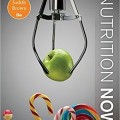 دانلود کتاب تغذیه کنونی
دانلود کتاب تغذیه کنونیNutrition Now, 8ed
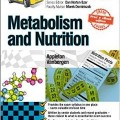 دانلود کتاب متابولیسم و تغذیه
دانلود کتاب متابولیسم و تغذیهCrash Course: Metabolism and Nutrition, 4ed
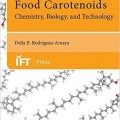 دانلود کتاب کاروتنوئیدها غذایی: شیمی، زیست شناسی و فناوری
دانلود کتاب کاروتنوئیدها غذایی: شیمی، زیست شناسی و فناوریFood Carotenoids: Chemistry, Biology and Technology, 1ed
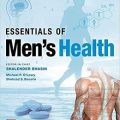 دانلود کتاب موارد ضروری سلامت مردان
دانلود کتاب موارد ضروری سلامت مردان Essentials of Men’s Health, 1ed
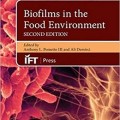 دانلود کتاب بیوفیلم در محیط غذایی
دانلود کتاب بیوفیلم در محیط غذاییBiofilms in the Food Environment, 2ed
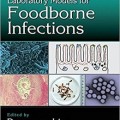 دانلود کتاب مدلهای آزمایشگاهی برای عفونت منتقله از غذا
دانلود کتاب مدلهای آزمایشگاهی برای عفونت منتقله از غذا Laboratory Models for Foodborne Infections, 1ed
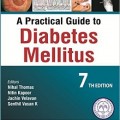 دانلود کتاب راهنمای عملی برای دیابت
دانلود کتاب راهنمای عملی برای دیابت A Practical Guide to Diabetes Mellitus, 7ed
 دانلود کتاب غددشناسی عصبی اشتها
دانلود کتاب غددشناسی عصبی اشتهاNeuroendocrinology of Appetite, 1ed
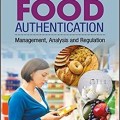 دانلود کتاب احراز هویت غذایی: مدیریت، آنالیز و مقررات
دانلود کتاب احراز هویت غذایی: مدیریت، آنالیز و مقرراتFood Authentication: Management, Analysis and Regulation, 1ed
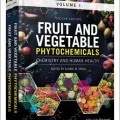 دانلود کتاب فیتوشیمیای میوه و سبزی: شیمی و سلامت انسان (۲ جلدی)
دانلود کتاب فیتوشیمیای میوه و سبزی: شیمی و سلامت انسان (۲ جلدی)Fruit and Vegetable Phytochemicals: Chemistry and Human Health, 2-Vol, 2ed
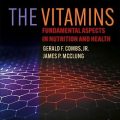 دانلود کتاب ویتامین ها: جنبه های اساسی در تغذیه و سلامت
دانلود کتاب ویتامین ها: جنبه های اساسی در تغذیه و سلامتThe Vitamins: Fundamental Aspects in Nutrition and Health, 6ed
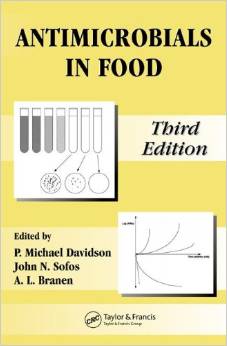 دانلود کتاب آنتی بیوتیکها در مواد غذایی
دانلود کتاب آنتی بیوتیکها در مواد غذاییAntimicrobials in Food, 3ed
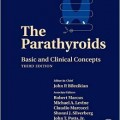 دانلود کتاب پاراتیروئید: مفاهیم پایه و بالینی
دانلود کتاب پاراتیروئید: مفاهیم پایه و بالینیThe Parathyroids: Basic and Clinical Concepts, 3ed
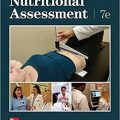 دانلود کتاب ارزیابی تغذیه ای
دانلود کتاب ارزیابی تغذیه ای Nutritional Assessment, 7ed
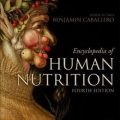 دانلود کتاب دانشنامه تغذیه انسان (۴ جلدی)
دانلود کتاب دانشنامه تغذیه انسان (۴ جلدی)Encyclopedia of Human Nutrition, 4ed
 دانلود کتاب بازاندیشی شواهد در زمان همهگیری
دانلود کتاب بازاندیشی شواهد در زمان همهگیریRethinking Evidence in the Time of Pandemics, 1ed
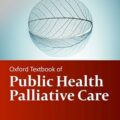 دانلود کتاب درسی مراقبت تسکینی سلامت عمومی آکسفورد
دانلود کتاب درسی مراقبت تسکینی سلامت عمومی آکسفوردOxford Textbook of Public Health Palliative Care, 1ed
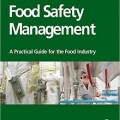 دانلود کتاب مدیریت سلامت مواد غذایی: راهنمای عملی برای صنایع غذایی
دانلود کتاب مدیریت سلامت مواد غذایی: راهنمای عملی برای صنایع غذاییFood Safety Management: A Practical Guide for the Food Industry, 1ed
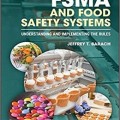 دانلود کتاب FSMA و سیستم ایمنی مواد غذایی: درک و پیاده سازی قوانین
دانلود کتاب FSMA و سیستم ایمنی مواد غذایی: درک و پیاده سازی قوانینFSMA and Food Safety Systems: Understanding and Implementing the Rules, 1ed
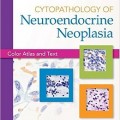 دانلود کتاب هیستوپاتولوژی غدد اعصاب نئوپلازی
دانلود کتاب هیستوپاتولوژی غدد اعصاب نئوپلازیCytopathology of Neuroendocrine Neoplasia, 1ed
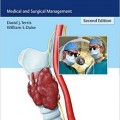 دانلود کتاب بیماریهای تیروئید و پاراتیروئید: مدیریت پزشکی و جراحی
دانلود کتاب بیماریهای تیروئید و پاراتیروئید: مدیریت پزشکی و جراحیThyroid and Parathyroid Diseases: Medical and Surgical Management, 2ed
 دانلود کتاب راهنمای جیبی برای ارتقاء سلامت
دانلود کتاب راهنمای جیبی برای ارتقاء سلامتThe Pocket Guide To Health Promotion, 1ed
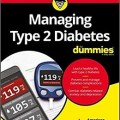 دانلود کتاب مدیریت دیابت نوع ۲ برای مبتدیان
دانلود کتاب مدیریت دیابت نوع ۲ برای مبتدیانManaging Type 2 Diabetes For Dummies, 1ed
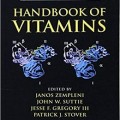 دانلود کتاب ویتامین ها
دانلود کتاب ویتامین ها Handbook of Vitamins, 5ed
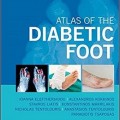 دانلود کتاب اطلس پای دیابتی
دانلود کتاب اطلس پای دیابتی Atlas of the Diabetic Foot, 3ed
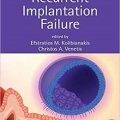 دانلود کتاب عدم موفقیت مکرر لانه گزینی
دانلود کتاب عدم موفقیت مکرر لانه گزینی Recurrent Implantation Failure, 1ed
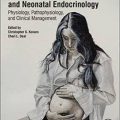 دانلود کتاب جنین مادر و غددشناسی نوزاد
دانلود کتاب جنین مادر و غددشناسی نوزادMaternal-Fetal and Neonatal Endocrinology, 1ed
 دانلود کتاب غددشناسی کودکان اسپرلینگ
دانلود کتاب غددشناسی کودکان اسپرلینگSperling Pediatric Endocrinology, 5ed
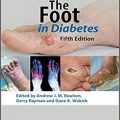 دانلود کتاب پا در دیابت
دانلود کتاب پا در دیابت The Foot in Diabetes, 5ed
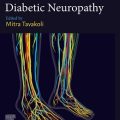 دانلود کتاب نوروپاتی دیابتی
دانلود کتاب نوروپاتی دیابتی Diabetic Neuropathy, 1ed
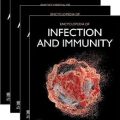 دانلود کتاب دانشنامه عفونت و ایمنی (۴ جلدی)
دانلود کتاب دانشنامه عفونت و ایمنی (۴ جلدی)Encyclopedia of Infection and Immunity, 1ed
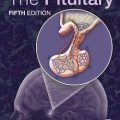 دانلود کتاب هیپوفیز
دانلود کتاب هیپوفیزThe Pituitary, 5ed
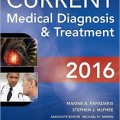 دانلود کتاب تشخیص پزشکی و درمان کارنت ۲۰۱۶ (ویرایش ۵۵)
دانلود کتاب تشخیص پزشکی و درمان کارنت ۲۰۱۶ (ویرایش ۵۵)CURRENT Medical Diagnosis and Treatment 2016
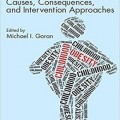 دانلود کتاب چاقی دوران کودکی: علل، پیامد و روش های مداخله
دانلود کتاب چاقی دوران کودکی: علل، پیامد و روش های مداخلهChildhood Obesity: Causes, Consequences, and Intervention Approaches, 1ed
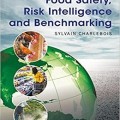 دانلود کتاب ایمنی مواد غذایی، آگاهی خطر و تعیین معیار
دانلود کتاب ایمنی مواد غذایی، آگاهی خطر و تعیین معیارFood Safety, Risk Intelligence and Benchmarking, 1ed
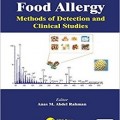 دانلود کتاب آلرژی غذایی: روشهای تشخیص و مطالعات بالینی
دانلود کتاب آلرژی غذایی: روشهای تشخیص و مطالعات بالینیFood Allergy: Methods of Detection and Clinical Studies, 1ed
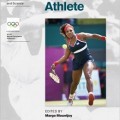 دانلود کتاب پزشکی ورزشی و علم، ورزشکار زن
دانلود کتاب پزشکی ورزشی و علم، ورزشکار زنHandbook of Sports Medicine and Science, The Female Athlete, 1ed
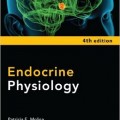 دانلود کتاب فیزیولوژی غدد درون ریز
دانلود کتاب فیزیولوژی غدد درون ریز Endocrine Physiology, 4ed
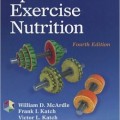 دانلود کتاب تغذیه در ورزش و تمرینات
دانلود کتاب تغذیه در ورزش و تمریناتSports and Exercise Nutrition, 4ed
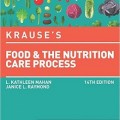 دانلود کتاب غذا و روند مراقبت تغذیه کراوس (ویرایش ۲۰۱۷)
دانلود کتاب غذا و روند مراقبت تغذیه کراوس (ویرایش ۲۰۱۷)Krause’s Food & the Nutrition Care Process, 14ed
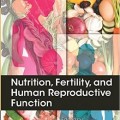 دانلود کتاب تغذیه، باروری و عملکرد تولید مثل انسان
دانلود کتاب تغذیه، باروری و عملکرد تولید مثل انسانNutrition, Fertility, and Human Reproductive Function, 1ed
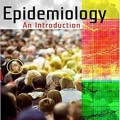 دانلود کتاب اپیدمیولوژی: معرفی
دانلود کتاب اپیدمیولوژی: معرفیEpidemiology: An Introduction, 2ed
 دانلود کتاب تومور و سرطان: غدد درون ریز – خون – مغز استخوان – لنفاوی
دانلود کتاب تومور و سرطان: غدد درون ریز – خون – مغز استخوان – لنفاویTumors and Cancers: Endocrine Glands – Blood – Marrow – Lymph, 1ed
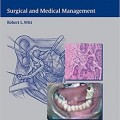 دانلود کتاب بیماری های غدد بزاقی: مدیریت جراحی و پزشکی
دانلود کتاب بیماری های غدد بزاقی: مدیریت جراحی و پزشکیSalivary Gland Diseases: Surgical and Medical Management, 1ed
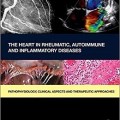 دانلود کتاب قلب در بیماری های روماتیسمی، خودایمنی و التهابی
دانلود کتاب قلب در بیماری های روماتیسمی، خودایمنی و التهابی The Heart in Rheumatic, Autoimmune and Inflammatory Diseases, 1ed
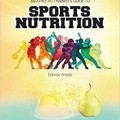 دانلود کتاب راهنمای مربییان برای تغذیه ورزشی ورزشکار
دانلود کتاب راهنمای مربییان برای تغذیه ورزشی ورزشکارAn Athletic Trainers’ Guide to Sports Nutrition, 1ed
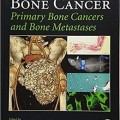 دانلود کتاب سرطان استخوان: سرطانهای استخوان اولیه و متاستاتهای استخوانی
دانلود کتاب سرطان استخوان: سرطانهای استخوان اولیه و متاستاتهای استخوانیBone Cancer: Primary Bone Cancers and Bone Metastases, 2ed
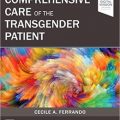 دانلود کتاب مراقبت جامع بیمار تراجنسیتی
دانلود کتاب مراقبت جامع بیمار تراجنسیتی Comprehensive Care of the Transgender Patient, 1ed
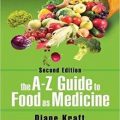 دانلود کتاب راهنمای A-Z غذا به عنوان دارو
دانلود کتاب راهنمای A-Z غذا به عنوان دارو The A-Z Guide to Food as Medicine, 2ed
 دانلود کتاب تغذیه و مراقبت های مربوط به تشخیص
دانلود کتاب تغذیه و مراقبت های مربوط به تشخیصNutrition and Diagnosis-Related Care, 8ed
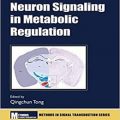 دانلود کتاب سیگنالینگ نورون در تنظیم متابولیک
دانلود کتاب سیگنالینگ نورون در تنظیم متابولیکNeuron Signaling in Metabolic Regulation, 1ed
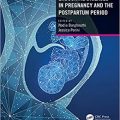 دانلود کتاب بیماری های غدد درون ریز در بارداری و دوره پس از زایمان
دانلود کتاب بیماری های غدد درون ریز در بارداری و دوره پس از زایمانEndocrine Diseases in Pregnancy and the Postpartum Period, 1ed
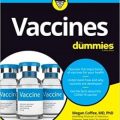 دانلود کتاب واکسن برای مبتدیان
دانلود کتاب واکسن برای مبتدیانVaccines For Dummies, 1ed
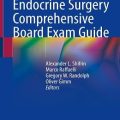 دانلود کتاب راهنمای آزمون بورد جامع جراحی غدد درون ریز
دانلود کتاب راهنمای آزمون بورد جامع جراحی غدد درون ریزEndocrine Surgery Comprehensive Board Exam Guide, 1ed
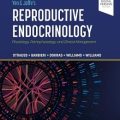 دانلود کتاب غدد درون ریز تولید مثل ین و جاف + ویدئو
دانلود کتاب غدد درون ریز تولید مثل ین و جاف + ویدئوYen & Jaffe’s Reproductive Endocrinology, 9ed + Video
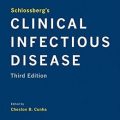 دانلود کتاب بیماری عفونی بالینی شلوسبرگ
دانلود کتاب بیماری عفونی بالینی شلوسبرگSchlossberg’s Clinical Infectious Disease, 3ed
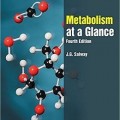 دانلود کتاب متابولیسم در یک نگاه
دانلود کتاب متابولیسم در یک نگاهMetabolism at a Glance, 4ed
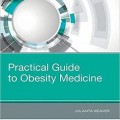 دانلود کتاب راهنمای عملی پزشکی چاقی
دانلود کتاب راهنمای عملی پزشکی چاقی Practical Guide to Obesity Medicine, 1ed
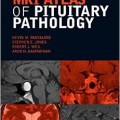 دانلود کتاب اطلس MRI پاتولوژی هیپوفیز
دانلود کتاب اطلس MRI پاتولوژی هیپوفیزMRI Atlas of Pituitary Pathology
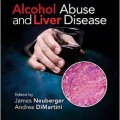 دانلود کتاب سوء استعمال الکل و بیماری کبد
دانلود کتاب سوء استعمال الکل و بیماری کبد Alcohol Abuse and Liver Disease
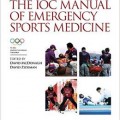 دانلود کتاب راهنمای IOC طب اورژانس ورزشی
دانلود کتاب راهنمای IOC طب اورژانس ورزشیThe IOC Manual of Emergency Sports Medicine
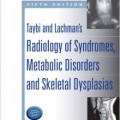 دانلود کتاب رادیولوژی سندرم، بیماریهای متابولیک و دیسپلازی اسکلتی طیبی و لاکمن
دانلود کتاب رادیولوژی سندرم، بیماریهای متابولیک و دیسپلازی اسکلتی طیبی و لاکمنTaybi and Lachman’s Radiology of Syndromes, Metabolic Disorders and Skeletal Dysplasias, 5ed
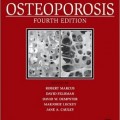 دانلود کتاب پوکی استخوان مارکوس و فلدمن (۲ جلدی)
دانلود کتاب پوکی استخوان مارکوس و فلدمن (۲ جلدی)Osteoporosis, 2-Volume Set, Fourth Edition
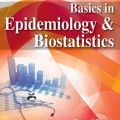 دانلود کتاب اصول اولیه در اپیدمیولوژی و آمار زیستی
دانلود کتاب اصول اولیه در اپیدمیولوژی و آمار زیستیBasics in Epidemiology & Biostatistics, 1ed
 دانلود کتاب ورزش و ماساژ: مراقبت جامع برای ورزشکاران، تناسب اندام و توانبخشی
دانلود کتاب ورزش و ماساژ: مراقبت جامع برای ورزشکاران، تناسب اندام و توانبخشیSports & Exercise Massage: Comprehensive Care for Athletics, Fitness, & Rehabilitation, 2ed
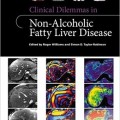 دانلود کتاب وضعیت حاد بالینی در بیماری کبد چرب غیر الکلی
دانلود کتاب وضعیت حاد بالینی در بیماری کبد چرب غیر الکلیClinical Dilemmas in Non-Alcoholic Fatty Liver Disease, 1ed
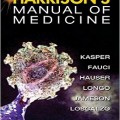 دانلود کتاب راهنمای پزشکی هریسون
دانلود کتاب راهنمای پزشکی هریسونHarrisons Manual of Medicine, 19ed
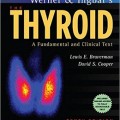 دانلود کتاب تیروئید ورنر و اینگبار: یک متن اساسی و بالینی
دانلود کتاب تیروئید ورنر و اینگبار: یک متن اساسی و بالینیWerner & Ingbar’s The Thyroid: A Fundamental and Clinical Text, 10ed
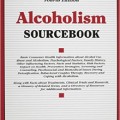 دانلود کتاب مرجع اعتیاد به الکل
دانلود کتاب مرجع اعتیاد به الکلAlcoholism Sourcebook, 4ed
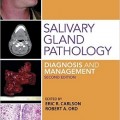 دانلود کتاب آسیب شناسی غدد بزاقی: تشخیص و مدیریت
دانلود کتاب آسیب شناسی غدد بزاقی: تشخیص و مدیریتSalivary Gland Pathology: Diagnosis and Management, 2ed
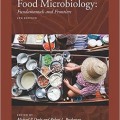 دانلود کتاب میکروبیولوژی مواد غذایی: اصول و مرز
دانلود کتاب میکروبیولوژی مواد غذایی: اصول و مرزFood Microbiology: Fundamentals and Frontiers, 4ed
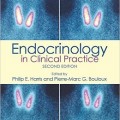 دانلود کتاب غدد درون ریز شناسی در عمل بالینی
دانلود کتاب غدد درون ریز شناسی در عمل بالینیEndocrinology in Clinical Practice, 2ed
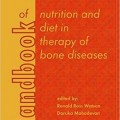 دانلود کتاب راهنمای تغذیه و رژیم غذایی در درمان بیماری های استخوان
دانلود کتاب راهنمای تغذیه و رژیم غذایی در درمان بیماری های استخوانHandbook of Nutrition and Diet in Therapy of Bone Diseases, 1ed
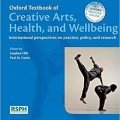 دانلود کتاب هنرهای خلاق، سلامت و تندرستی آکسفورد
دانلود کتاب هنرهای خلاق، سلامت و تندرستی آکسفوردOxford Textbook of Creative Arts, Health, and Wellbeing, 1ed
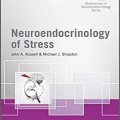 دانلود کتاب غددشناسی عصبی استرس
دانلود کتاب غددشناسی عصبی استرسNeuroendocrinology of Stress, 1ed
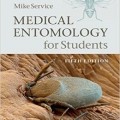 دانلود کتاب حشره شناسی پزشکی برای دانشجویان
دانلود کتاب حشره شناسی پزشکی برای دانشجویانMedical Entomology for Students, 5ed
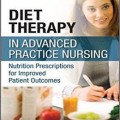 دانلود کتاب رژیم غذایی در تمرین پیشرفته پرستاری
دانلود کتاب رژیم غذایی در تمرین پیشرفته پرستاریDiet Therapy in Advanced Practice Nursing, 1ed
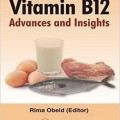 دانلود کتاب ویتامین B12: پیشرفت و آگاهی
دانلود کتاب ویتامین B12: پیشرفت و آگاهیVitamin B12: Advances and Insights, 1ed
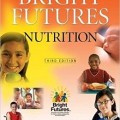 دانلود کتاب آینده روشن تغذیه
دانلود کتاب آینده روشن تغذیه Bright Futures Nutrition, 3ed
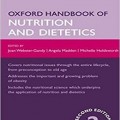 دانلود کتاب راهنمای تغذیه و رژیم غذایی آکسفورد
دانلود کتاب راهنمای تغذیه و رژیم غذایی آکسفوردOxford Handbook of Nutrition and Dietetics, 2ed
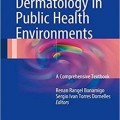 دانلود کتاب درماتولوژی در محیط های سلامت عمومی
دانلود کتاب درماتولوژی در محیط های سلامت عمومیDermatology in Public Health Environments, 1ed
 دانلود کتاب پسوریازیس و آرتریت پسوریاتیک: پاتوفیزیولوژی، درمان مداخله ای و پزشکی مکمل
دانلود کتاب پسوریازیس و آرتریت پسوریاتیک: پاتوفیزیولوژی، درمان مداخله ای و پزشکی مکملPsoriasis and Psoriatic Arthritis: Pathophysiology, Therapeutic Intervention, and Complementary Medicine, 1ed
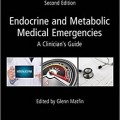 دانلود کتاب فوریت های پزشکی غدد درون ریز و متابولیک
دانلود کتاب فوریت های پزشکی غدد درون ریز و متابولیکEndocrine and Metabolic Medical Emergencies, 2ed
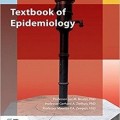 دانلود کتاب اپیدمیولوژی
دانلود کتاب اپیدمیولوژی Textbook of Epidemiology, 1ed
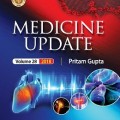 دانلود کتاب پزشکی روزآمد ۲۰۱۸ (ویرایش ۲۸)
دانلود کتاب پزشکی روزآمد ۲۰۱۸ (ویرایش ۲۸)Medicine Update, Vol-28, 2018
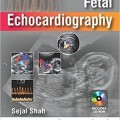 دانلود کتاب اکوکاردیوگرافی جنینی
دانلود کتاب اکوکاردیوگرافی جنینیFetal Echocardiography, 1ed
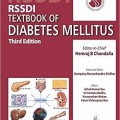 دانلود کتاب راهنمای دیابت شیرین RSSDI
دانلود کتاب راهنمای دیابت شیرین RSSDIRSSDI Textbook of Diabetes Mellitus, 3ed
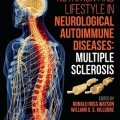 دانلود کتاب تغذیه و شیوه زندگی در بیماری های خودایمنی عصبی: مولتیپل اسکلروز
دانلود کتاب تغذیه و شیوه زندگی در بیماری های خودایمنی عصبی: مولتیپل اسکلروزNutrition and Lifestyle in Neurological Autoimmune Diseases: Multiple Sclerosis, 1ed
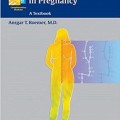 دانلود کتاب طب سوزنی پزشکی در بارداری
دانلود کتاب طب سوزنی پزشکی در بارداریMedical Acupuncture in Pregnancy, 1ed
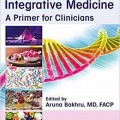 دانلود کتاب تغذیه و پزشکی متمرکز
دانلود کتاب تغذیه و پزشکی متمرکزNutrition and Integrative Medicine, 1ed
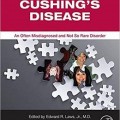 دانلود کتاب بیماری کوشینگ
دانلود کتاب بیماری کوشینگ Cushing’s Disease, 1ed
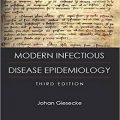 دانلود کتاب اپیدمیولوژی بیماری عفونی مدرن
دانلود کتاب اپیدمیولوژی بیماری عفونی مدرنModern Infectious Disease Epidemiology, 3ed
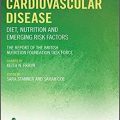 دانلود کتاب بیماری های قلبی و عروقی: رژیم، تغذیه و عوامل خطر در حال ظهور
دانلود کتاب بیماری های قلبی و عروقی: رژیم، تغذیه و عوامل خطر در حال ظهورCardiovascular Disease: Diet, Nutrition and Emerging Risk Factors, 2ed
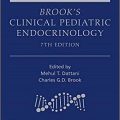 دانلود کتاب غددشناسی بالینی کودکان بروک
دانلود کتاب غددشناسی بالینی کودکان بروکBrook’s Clinical Pediatric Endocrinology, 7ed
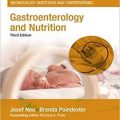 دانلود کتاب دستگاه گوارش و تغذیه: سؤالات و مباحثات نوزادشناسی
دانلود کتاب دستگاه گوارش و تغذیه: سؤالات و مباحثات نوزادشناسیGastroenterology and Nutrition: Neonatology Questions and Controversies, 3ed
 دانلود کتاب غدد شناسی و دیابت کودکان آکسفورد
دانلود کتاب غدد شناسی و دیابت کودکان آکسفوردPaediatric Endocrinology and Diabetes, 2ed
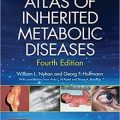 دانلود کتاب اطلس بیماریهای متابولیک ارثی
دانلود کتاب اطلس بیماریهای متابولیک ارثی Atlas of Inherited Metabolic Diseases, 4ed
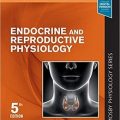 دانلود کتاب فیزیولوژی غدد درون ریز و باروری
دانلود کتاب فیزیولوژی غدد درون ریز و باروریEndocrine and Reproductive Physiology, 5ed
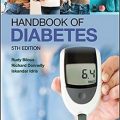 دانلود کتاب راهنمای دیابت
دانلود کتاب راهنمای دیابت Handbook of Diabetes, 5ed
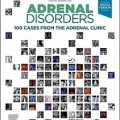 دانلود کتاب اختلالات آدرنال: ۱۰۰ مورد از کلینیک آدرنال
دانلود کتاب اختلالات آدرنال: ۱۰۰ مورد از کلینیک آدرنالAdrenal Disorders: 100 Cases from the Adrenal Clinic, 1ed
 دانلود کتاب سموم غدد درون ریز محیطی
دانلود کتاب سموم غدد درون ریز محیطیEnvironmental Endocrine Toxicants, 1ed
 دانلود کتاب اعتیاد و بهبودی برای مبتدیان
دانلود کتاب اعتیاد و بهبودی برای مبتدیانAddiction & Recovery For Dummies, 2ed
 دانلود کتاب بهداشت عمومی و رفاه (۳ جلدی)
دانلود کتاب بهداشت عمومی و رفاه (۳ جلدی)Public Health and Welfare, 1ed
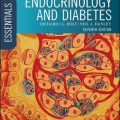 دانلود کتاب غدد درون ریز و دیابت ضروری
دانلود کتاب غدد درون ریز و دیابت ضروریEssential Endocrinology and Diabetes, 7ed
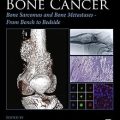 دانلود کتاب سرطان استخوان: سارکوم استخوان و متاستاز استخوان
دانلود کتاب سرطان استخوان: سارکوم استخوان و متاستاز استخوانBone Cancer: Bone Sarcomas and Bone Metastases – From Bench to Bedside, 3ed
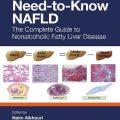 دانلود کتاب نیاز به دانستن NAFLD: راهنمای کامل بیماری کبد چرب غیر الکلی
دانلود کتاب نیاز به دانستن NAFLD: راهنمای کامل بیماری کبد چرب غیر الکلیNeed-to-Know NAFLD: The Complete Guide to Nonalcoholic Fatty Liver Disease, 1ed
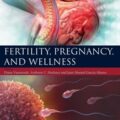 دانلود کتاب باروری، بارداری و تندرستی
دانلود کتاب باروری، بارداری و تندرستیFertility, Pregnancy and Wellness, 1ed
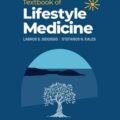 دانلود کتاب درسی پزشکی سبک زندگی
دانلود کتاب درسی پزشکی سبک زندگیTextbook of Lifestyle Medicine, 1ed
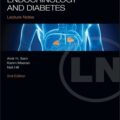 دانلود کتاب غدد درون ریز و دیابت (یادداشت های سخنرانی)
دانلود کتاب غدد درون ریز و دیابت (یادداشت های سخنرانی)Endocrinology and Diabetes (Lecture Notes), 2ed
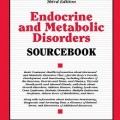 دانلود کتاب مرجع اختلالات غدد درون ریز و متابولیک
دانلود کتاب مرجع اختلالات غدد درون ریز و متابولیکEndocrine and Metabolic Disorders Sourcebook, 3ed
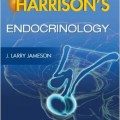 دانلود کتاب غدد شناسی هریسون (جدیدترین ویرایش)
دانلود کتاب غدد شناسی هریسون (جدیدترین ویرایش)Harrison’s Endocrinology, 3ed
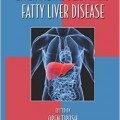 دانلود کتاب متابولیسم کبد و بیماری کبد چرب (فشار اکسیداتیو و بیماری)
دانلود کتاب متابولیسم کبد و بیماری کبد چرب (فشار اکسیداتیو و بیماری)Liver Metabolism and Fatty Liver Disease (Oxidative Stress and Disease), 1ed
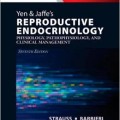 دانلود کتاب غدد تناسلی ین و ژافه: فیزیولوژی، پاتوفیزیولوژی و مدیریت بالینی
دانلود کتاب غدد تناسلی ین و ژافه: فیزیولوژی، پاتوفیزیولوژی و مدیریت بالینیYen & Jaffe’s Reproductive Endocrinology: Physiology, Pathophysiology, and Clinical Management, 7ed
 دانلود کتاب راهنمای عملی اختلالات مصرف مواد و تجویز ایمن آدا
دانلود کتاب راهنمای عملی اختلالات مصرف مواد و تجویز ایمن آداThe ADA Practical Guide to Substance Use Disorders and Safe Prescribing
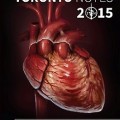 دانلود کتاب پزشکی تورنتو نوت (نسخه ۲۰۱۵)
دانلود کتاب پزشکی تورنتو نوت (نسخه ۲۰۱۵)Toronto Notes 2015 (Essential Med Notes), 31ed
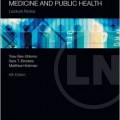 دانلود کتاب یادداشت های درسی: اپیدمیولوژی ، پزشکی مبتنی بر شواهد و بهداشت عمومی
دانلود کتاب یادداشت های درسی: اپیدمیولوژی ، پزشکی مبتنی بر شواهد و بهداشت عمومیLecture Notes: Epidemiology, Evidence-based Medicine and Public Health, 6ed
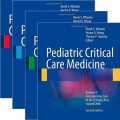 دانلود کتاب پزشکی مراقبت بحرانی کودکان (۴ جلدی)
دانلود کتاب پزشکی مراقبت بحرانی کودکان (۴ جلدی)Pediatric Critical Care Medicine, 4-Vol, 2ed
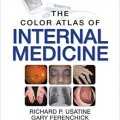 دانلود کتاب اطلس رنگی طب داخلی یوسَتین
دانلود کتاب اطلس رنگی طب داخلی یوسَتینColor Atlas of Internal Medicine, 1ed
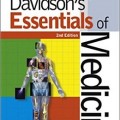 دانلود کتاب ملزومات پزشکی دیویدسون
دانلود کتاب ملزومات پزشکی دیویدسونDavidson’s Essentials of Medicine, 2ed
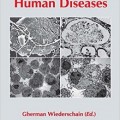 دانلود کتاب گلیکوبیولوژی و بیماری های انسانی
دانلود کتاب گلیکوبیولوژی و بیماری های انسانیGlycobiology and Human Diseases, 1ed
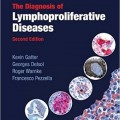 دانلود کتاب تشخیص بیماری های لنفوپرولیفراتیو
دانلود کتاب تشخیص بیماری های لنفوپرولیفراتیو The Diagnosis of Lymphoproliferative Diseases, 2ed
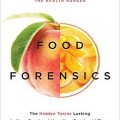 دانلود کتاب پزشکی قانونی غذا
دانلود کتاب پزشکی قانونی غذاFood Forensics, 1ed
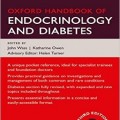 دانلود کتاب غدد درون ریز و دیابت آکسفورد
دانلود کتاب غدد درون ریز و دیابت آکسفوردOxford Handbook of Endocrinology and Diabetes, 3ed
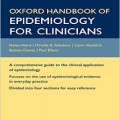 دانلود کتاب اپیدمیولوژی برای پزشکان آکسفورد
دانلود کتاب اپیدمیولوژی برای پزشکان آکسفوردOxford Handbook of Epidemiology for Clinicians, 1ed
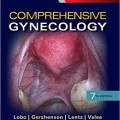 دانلود کتاب جامع پزشکی زنان و زایمان
دانلود کتاب جامع پزشکی زنان و زایمان Comprehensive Gynecology, 7ed
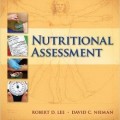 دانلود کتاب ارزیابی وضعیت تغذیه
دانلود کتاب ارزیابی وضعیت تغذیه Nutritional Assessment, 6ed
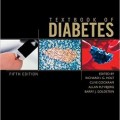 دانلود کتاب دیابت (ویرایش ۲۰۱۷)
دانلود کتاب دیابت (ویرایش ۲۰۱۷)Textbook of Diabetes, 5ed
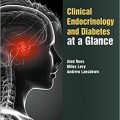 دانلود کتاب غدد درون ریز بالینی و دیابت در یک نگاه
دانلود کتاب غدد درون ریز بالینی و دیابت در یک نگاهClinical Endocrinology and Diabetes at a Glance, 1ed
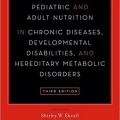 دانلود کتاب تغذیه کودکان و بزرگسالان در بیماری های مزمن، ناتوانی های رشدی و اختلالات متابولیک ارثی: پیشگیری، سنجش و درمان
دانلود کتاب تغذیه کودکان و بزرگسالان در بیماری های مزمن، ناتوانی های رشدی و اختلالات متابولیک ارثی: پیشگیری، سنجش و درمانPediatric and Adult Nutrition in Chronic Diseases, Developmental Disabilities, and Hereditary Metabolic Disorders: Prevention, Assessment, and Treatment, 3ed
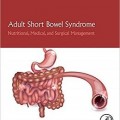 دانلود کتاب سندروم روده کوتاه بزرگسالان: تغذیه، پزشکی و مدیریت جراحی
دانلود کتاب سندروم روده کوتاه بزرگسالان: تغذیه، پزشکی و مدیریت جراحیAdult Short Bowel Syndrome: Nutritional, Medical, and Surgical Management, 1ed
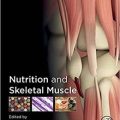 دانلود کتاب تغذیه و عضلات اسکلتی
دانلود کتاب تغذیه و عضلات اسکلتیNutrition and Skeletal Muscle, 1ed
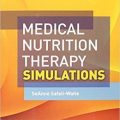 دانلود کتاب شبیه سازی های تغذیه درمانی پزشکی
دانلود کتاب شبیه سازی های تغذیه درمانی پزشکیMedical Nutrition Therapy Simulations, 1ed
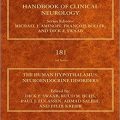 دانلود کتاب هیپوتالاموس انسان: اختلالات نورواندوکرین
دانلود کتاب هیپوتالاموس انسان: اختلالات نورواندوکرینThe Human Hypothalamus: Neuroendocrine Disorders, 1ed
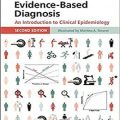 دانلود کتاب تشخیص مبتنی بر شواهد: مقدمه ای بر اپیدمیولوژی بالینی
دانلود کتاب تشخیص مبتنی بر شواهد: مقدمه ای بر اپیدمیولوژی بالینیEvidence-Based Diagnosis: An Introduction to Clinical Epidemiology, 2ed
 دانلود کتاب اپیدمیولوژی چشم
دانلود کتاب اپیدمیولوژی چشمOphthalmic Epidemiology, 1ed
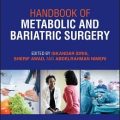 دانلود کتاب راهنمای جراحی چاقی و متابولیک
دانلود کتاب راهنمای جراحی چاقی و متابولیکHandbook of Metabolic and Bariatric Surgery, 1ed
 دانلود کتاب غدد درون ریز تولید مثل ین و جاف: فیزیولوژی، پاتوفیزیولوژی و مدیریت بالینی
دانلود کتاب غدد درون ریز تولید مثل ین و جاف: فیزیولوژی، پاتوفیزیولوژی و مدیریت بالینیYen & Jaffe’s Reproductive Endocrinology: Physiology, Pathophysiology, and Clinical Management, 9ed
 دانلود کتاب رژیم کتوژنیک و درمان های متابولیک
دانلود کتاب رژیم کتوژنیک و درمان های متابولیکKetogenic Diet and Metabolic Therapies, 2ed
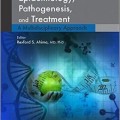 دانلود کتاب اپیدمیولوژی، پاتوژنز و درمان چاقی
دانلود کتاب اپیدمیولوژی، پاتوژنز و درمان چاقیObesity Epidemiology, Pathogenesis, and Treatment, 1ed



